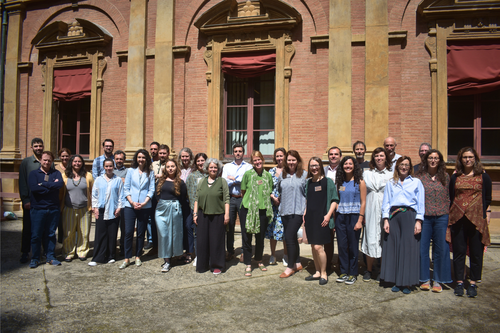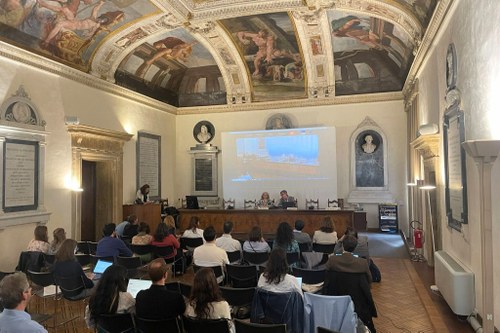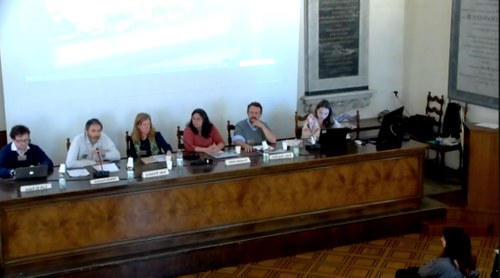The research project RESPOND - Rescuing Democracy from Political Corruption in Digital Societies, launched in May 2024
Funded by the Horizon Europe programme, the project sheds light on the corruption and undue influence that undermine the quality of democracy.
Published on 29 March 2024

The BIT-ACT research team announces RESPOND, a brand new research project funded by a Horizon Europe RIA grant, which will allow us to continue working on corruption and citizens' responses to it, including actions through digital technologies and media. The kick-off meeting of RESPOND took place on 22-24 May at the University of Bologna.
RESPOND addresses these key challenges for democracy. How exactly does political corruption work in today's digital societies? How pervasive is its negative impact on democracy? And how can anti-corruption efforts rebuild people's support for democracy as a regime and encourage their commitment to integrity and their rejection of undemocratic proposals and actions? RESPOND will answer these and other related questions by exploring the phenomenon of political corruption and undue influence in digital societies and proposing solutions to combat it.
RESPOND does this through a novel interdisciplinary assessment of political corruption, understood here as behaviours and actions that often proliferate in grey areas of legality, leading to biased decision-making and exclusion in the political cycle. Based on a mixed-methods research design, RESPOND examines 27 EU countries and 11 neighbouring countries to achieve four ambitious objectives:
- Analyze four contemporary and relevant forms of political influence (political finance, lobbying, revolving doors/personal ties, and media capture) to understand when they become problematic forms of influence linked to specific patterns of political corruption, undermining fair competition and broad participation in political decision-making processes.
- Evaluate how political elites and citizens understand political corruption and how it is socially constructed through media and education, as well as its implications for both the legitimacy and credibility of democracy and responses to this global problem of political corruption.
- Explore how established and emerging digital technologies are intertwined with political corruption and how they enhance anti-corruption and pro-integrity strategies at both national and transnational levels.
- Engage in co-creation with relevant stakeholders to design, test and revise practices and tools, including new risk indicators developed by RESPOND, to improve citizen monitoring and integrity in contemporary democracies.
The project sustains the European Union's efforts to ensure the strength of democracy and restore civil society's confidence in democratic values. It will run for 5 years and is coordinated by the University of Bologna in Italy, with Alice Mattoni, the current PI of the BIT-ACT project, as RESPOND's Scientific Coordinator.
Apart from coordinating and managing the consortium, Unibo's role in RESPOND includes conducting research, together with some of the partners, on grassroots pro-integrity practices and new forms of cross-border political corruption in digital societies as well as developing and refining theoretical, empirical, and regulatory frameworks related to political corruption and undue influence.
The other partners in the consortium are the Anti-Corruption Research And Education Centre (UKR), Central European University (AT), Government Transparency Institute (HU), University of Gothenburg (SE), Institute for Global Analytics (BG), King's College London (UK), Libera- associazione, nomi e numeri contro le mafie (IT), Sciences Po (FR), Sustainable Communication (BE) with its affiliates Net7 (IT) and Tele Radio City (IT), University of Amsterdam (NL), University of Lisbon (PT), University of Duisburg-Essen (DE), Università Cattolica del Sacro Cuore (IT).

Launch of RESPOND in Bologna at a public event on the 22 of May 2024

Round table with RESPOND partners during the launch of the new project in May 2024